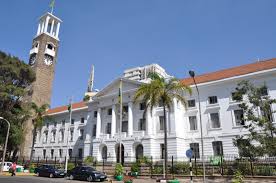Nairobi is among ten counties that did not report any expenditure on development programmes in the first quarter of the Financial Year 2024/25, covering July to September 2024.
- County governments’ development expenditure amounted to Kshs 6.71 billion, translating to an absorption rate of 3 per cent of the annual development budget of Kshs 205.33 billion.
- This was a decline from the 4 per cent absorption rate in a similar FY 2023/24 period when the County Governments’ cumulative expenditure on development activities was Kshs 6.92 billion.
- Other than Nairobi, Baringo, Elgeyo-Marakwet, Kajiado, Kisii, Lamu, Nyandarua, Tana River, Uasin Gishu and West Pokot Counties also did not report any expenditure on development programmes during the period.
Kirinyaga and Busia a Counties achieved higher absorption rates of their approved development budgets, each attaining 12 per cent, followed by Siaya and Garissa Counties which absorbed 10 per cent of their budgets.
The Scourge of Pending Bills
The County Governments reported outstanding pending bills of KShs 168.62 billion, comprising KShs 129.15 billion for recurrent activities and KShs 34.47 billion for development activities.
The counties with significant pending bills stock included Nairobi City at KShs 121.06 billion, Garissa at KShs 6.07 billion, Kiambu at KSh 5.90 billion, Turkana at KSh 4.78 billion, Machakos at KSh 4.42 billion, and Mombasa at KSh 3.93 billion.
During the period, the Controller of Budget identified some challenges that hindered effective budget execution.
“These challenges included delays in submission of County Appropriation Acts, Budget Books and Governors Warrants for FY 2024/25 to OCoB (The Office of Controler of Budget), delays by Parliament in enacting the County Allocation of Revenue Bill 2024, delayed disbursement of the equitable share of revenue by the National Treasury, underperformance in the collection of own-source revenue, overdependence on funding from appropriations in aid and facility improvement fund/financing, a high level of pending bills, low expenditure on the development budget, and the failure of fund administrators to submit quarterly financial statements to the Controller of Budget,” says Controller of Budget, Dr. Margaret Nyakang’o.
Her office challenged Parliament to expedite the enactment of the County Allocation of Revenue Bill 2024 and the County Governments’ Additional Allocations Bill 2024.
She notes that the President’s decision not to sign the Finance Bill 2024 into law meant that certain revenue-raising measures within the bill would not be implemented.




